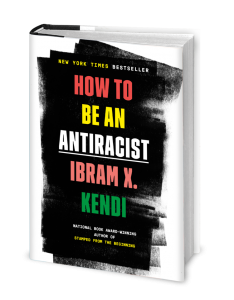Julian of Norwich, Revelations of Divine Love
“In This Love We Have Our Beginning”
Jonathan Wilson
Seven hundred years ago, a far worse pandemic swept across Asia, North Africa, and Europe. “So many people have died,” one Italian wrote in 1348, “that everyone believes it is the end of the world.” In Norwich, a city in eastern England, the dazed survivors included a seven-year-old girl. We know her as Julian. She would live through more epidemics and terrible local wars. And when she was thirty years old, while suffering from a severe fever, Julian would receive a series of visions of Jesus Christ. She would spend the rest of her life trying to understand them.
Last month, looking for some Lenten reading, I picked out the Revelations of Divine Love, the book Julian of Norwich wrote about her visions. To be honest, I didn’t know much about it—just that it was the first book written in English by a woman. And it’s different from the sort of thing I usually read. I couldn’t know how timely it would soon seem.
As I discovered, Julian not only survived terrifying diseases. She also spent the last decades of her life as an “anchoress.” In other words, she devoted herself to God by vowing to spend the rest of her life enclosed in a room attached to a church. As an anchoress, her mission was to serve her community through solitude—not by slowing down a virus, but by living in constant prayer. She probably even partook of the Mass by watching through a window from her room. Sound familiar?
What I found in Julian’s book was a woman struggling to understand not her own suffering, as you might expect, but God’s goodness. How could she find consolation when she was so self-conscious before him as a sinful and mortal person?
In visualizing Jesus’s dying, discolored, blood-caked face, Julian found her answer. You can imagine her sitting up suddenly at the realization: He wanted to be one of us! He became one with us to show us that he made us to be one with him. “For the love and honor of man,” she wrote, “Christ took on our flesh—become one of our afflicted, perishable bodies—so that we, in turn, can become truly ourselves—the spirits he always made us to be, in union with him.”
In the oneness of God’s love, and in Christ’s loving mission to reunite everyone with himself, Julian believed she dimly understood. “Sin is befitting,” she heard Jesus say, “but all shall be well, and all shall be well, and all manner of things shall be well.”
Those have become the most famous lines of her book, quoted by T. S. Eliot in 1942, in his great wartime religious poem “Little Gidding.”
I can’t claim to understand everything that Julian of Norwich wrote. The Revelations of Divine Love include many layers and puzzles. I have a feeling that I’ll return to the book again and again, trying to understand more. What I know for now is that Julian’s conviction of Christ’s love, expressed in his human suffering, has brought me comfort in a difficult time.
If you would like to read the book for yourself, I recommend the new Oxford World’s Classics edition translated (that is, put into more modern English) by Barry Windeatt. It comes with an excellent scholarly introduction, which may be helpful for digging deeper into the book’s meanings. To learn more about Julian of Norwich, you may also want to listen to this 15-minute interview with her biographer Amy Frikholm, which aired on Australian radio a few years ago.
In the Episcopal calendar, Julian of Norwich is commemorated on May 8.
Julian of Norwich, Revelations of Divine Love, tr. Barry Windeatt (2015: Oxford World’s Classics) reviewed by Jonathan Wilson
Kendi, How to be an Antiracist
 Ibram X. Kendi’s, How to be an Antiracist is a powerful, eloquent, confessional exploration of racism and antiracism in a variety of aspects. Kendi invites readers along on his own journey of discovery of the racism that lives within himself, and of the habits and attitudes he strives to cultivate to uproot that racism. Kendi is not especially concerned about purity tests or disagreements about terms. Kendi believes the proper field for fighting racism is in concentrating very specifically on questions of policy — the ways we choose to live together. He writes, “A racist policy is any measure that produces or sustains racial inequity between racial groups. An antiracist policy is any measure that produces or sustains racial equity between racial groups” (p. 18).
Ibram X. Kendi’s, How to be an Antiracist is a powerful, eloquent, confessional exploration of racism and antiracism in a variety of aspects. Kendi invites readers along on his own journey of discovery of the racism that lives within himself, and of the habits and attitudes he strives to cultivate to uproot that racism. Kendi is not especially concerned about purity tests or disagreements about terms. Kendi believes the proper field for fighting racism is in concentrating very specifically on questions of policy — the ways we choose to live together. He writes, “A racist policy is any measure that produces or sustains racial inequity between racial groups. An antiracist policy is any measure that produces or sustains racial equity between racial groups” (p. 18).
Kendi affirms the broadly accepted idea that race is a purely social construct, a “power construct.” There is no genetic or even ethnic reality to the idea of race. Race is, says Kendi, a “mirage,” but one that is very powerful and effective in American society, and thus one to which we must pay attention. Antiracist policy seeks to erase racial inequities — and sometimes that will mean reversing them for a season as we seek to correct past injustices. For example, Kendi does not mention recent battles over Affirmative Action in schools, but his writing provides a clear rationale for the purpose of Affirmative Action and the ways that would feel like discrimination to groups who are so accustomed to privilege and preference as to consider that the norm.
In a book full of clear ideas, respectfully and well-argued, the one most striking to me was one with which he began, the one behind the title. “Not a racist,” “non-racist,” “color-blind,” and “post-racial” are all attempts to avoid the issue. And here’s the clue: if you’re looking to avoid the issue, it’s almost certainly because you’re not the one being hurt by the issue. It’s because you stand to lose rather than to gain by dealing with the issue directly. My feelings of guilt and impotency around the reality of racial inequality mean I wish it would go away. Yet it does not. To avoid dealing with racism is to acquiesce, to agree to, ultimately to support, the status quo. I believe the status quo in our country is still terribly marked by racism. So my choice — as a human being and as one who strives to follow Jesus — is whether I’m going to say I’m OK being part of a system the sustains racial inequity or whether I will strive to set aside my own racist habits (affirming or not calling out policies that promote injustice) and choose instead to speak and act in ways that are consciously, decisively antiracist.
Short chapters and friendly, readable prose make this book simultaneously approachable and thought-provoking.
Ibram X. Kendi, How to be an Antiracist (One World: 2019) reviewed by the Rev. Todd Foster

